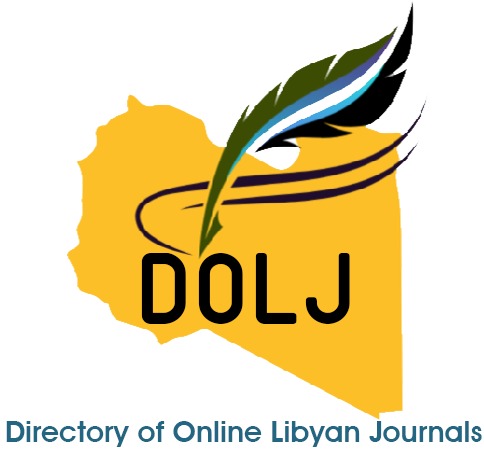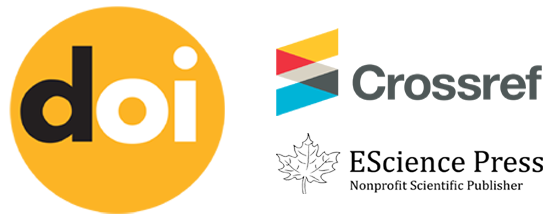Analyzing Awareness and Knowledge of Artificial Intelligences Potential Application in Prosthodontics and Clinical Dentistry
Abstract
Artificial intelligence (AI) has seen a surge in utilization in dentistry and medicine in recent years. Deep learning algorithms have outperformed clinicians in accuracy and efficiency when it comes to pros-thodontic diagnosis. The aim of this study was to collect information regarding the knowledge and opinions of physicians and students regarding artificial intelligence (AI). Dentistry professionals were asked to respond to a 14-item survey regarding their use of AI in clinical settings. A cross-sectional online survey was conducted among experienced dentists and undergraduate students from various dental medicine institutions in Tripoli (n = 402) to assess current perceptions and grasps of AI in practice. Statistical analysis was performed with SPSS 20®1, Graph Pad Prism®1, and Microsoft Excel 20163. All qualitative data were presented as frequency & percentages, all comparisons were performed by using the Chi square test. There was a notable variation in the responses given that 50.7% of par-ticipants are aware of healthcare equipment powered by AI, and 38.8% think AI may be used to diagnose soft tissue lesions. 52.7% believe in AI's ability to learn from successful crown designs. 52.2% of re-spondents think AI can be applied to implant detection. 51% of people think AI can be utilized in caries diagnosis. Compared to females, males exhibit higher levels of awareness (61.9%). The study's con-clusions indicate that Tripoli's dental practitioners are fairly knowledgeable about artificial intelligence in dentistry. Nonetheless, a great deal of positivety outweighs the use of artificial intelligence in dentistry. To improve professional and student preparedness, and hence, expand AI integration in practice, more work needs to be done in this area. Participants who are male are more upbeat and self-assured about AI in dentistry.
شهد الذكاء الاصطناعي زيادة كبيرة في الاستخدام في طب الأسنان والطب في السنوات الأخيرة. وقد تفوقت خوارزميات التعلم العميق على الأطباء السريريين في الدقة والكفاءة عندما يتعلق الأمر بتشخيص الأسنان الاصطناعية. كان الهدف من هذه الدراسة جمع المعلومات المتعلقة بمعرفة وآراء الأطباء والطلاب فيما يتعلق بالذكاء الاصطناعي. طُلب من محترفي طب الأسنان الرد على استبيان مكون من 14 بندًا بشأن استخدامهم للذكاء الاصطناعي في الإعدادات السريرية. تم إجراء استطلاع مقطعي عبر الإنترنت بين أطباء الأسنان ذوي الخبرة وطلاب البكالوريوس من مختلف مؤسسات طب الأسنان في طرابلس (ن = 402) لتقييم التصورات الحالية وفهم الذكاء الاصطناعي في الممارسة العملية. تم إجراء التحليل الإحصائي باستخدام SPSS 20®1 و Graph Pad Prism®1 و Microsoft Excel 20163. تم تقديم جميع البيانات النوعية كتردد ونسب مئوية، وتم إجراء جميع المقارنات باستخدام اختبار مربع كاي. كان هناك تباين ملحوظ في الاستجابات حيث أن 50.7٪ من المشاركين على دراية بمعدات الرعاية الصحية التي تعمل بالذكاء الاصطناعي، ويعتقد 38.8٪ أنه يمكن استخدام الذكاء الاصطناعي لتشخيص آفات الأنسجة الرخوة. يعتقد 52.7٪ في قدرة الذكاء الاصطناعي على التعلم من تصميمات التيجان الناجحة. يعتقد 52.2٪ من المستجيبين أنه يمكن تطبيق الذكاء الاصطناعي على اكتشاف الغرسات. يعتقد 51٪ من الناس أنه يمكن استخدام الذكاء الاصطناعي في تشخيص تسوس الأسنان. بالمقارنة مع الإناث، يُظهر الذكور مستويات أعلى من الوعي (61.9٪). تشير استنتاجات الدراسة إلى أن ممارسي طب الأسنان في طرابلس لديهم معرفة كافية بالذكاء الاصطناعي في طب الأسنان. ومع ذلك، فإن قدرًا كبيرًا من الإيجابية يفوق استخدام الذكاء الاصطناعي في طب الأسنان. لتحسين الاستعداد المهني والطلابي، وبالتالي توسيع تكامل الذكاء الاصطناعي في الممارسة العملية، يجب القيام بمزيد من العمل في هذا المجال. المشاركون من الذكور أكثر تفاؤلاً وثقة بالنفس بشأن الذكاء الاصطناعي في طب الأسنان











